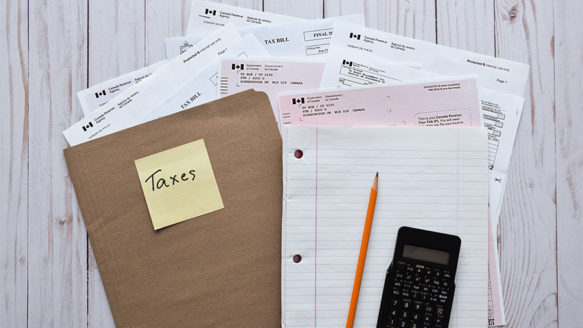
RRSP vs TFSA: What’s Best For You?
It’s never too late to start planning for your future. Whether you contribute into a Registered Retirement Savings Plan (RRSP) or a Tax-Free Savings Account (TFSA), there are lots of benefits to both. For more information on RRSPs and TFSAs and how to choose the best option for you, take a look at our segment on Alberta Primetime below.
Full transcription:
Let’s start with RRSP contributions. Whether someone does it monthly or in one chunk, this time of year you always stress how important they are.
That is correct. So last month I talked about the need to budget for your annual expenses⏤be it, you know, Christmas, vacations, car repairs or whatever⏤on a monthly basis. So save one-twelfth of that amount every month. We are now entering the third month, so two months have gone by, so if you followed my advice then you should have two months’ worth of savings for all of those categories. And if you haven’t, then I’m gonna nag you and say you either need to adjust the amount that you’re going to save or adjust your budget so you’re saving more, but time to make adjustments as we move forward.
But some wonder why make RRSP contributions if we already have a pension we pay into, let’s say, through work.
And if you have a pension at work, then that is great, but fewer and fewer and fewer people do have pensions at work. Now when we say pension, we’re talking about defined benefit pensions. So if you’re a government employee, provincial employee or any type of city employee, usually you have those types. But for defined contribution where you have to contribute, then that’s a different matter and that’s one thing I think that we should all be paying a lot of attention to.
Let’s talk about the two: RRSP versus TFSA. There is quite a difference here.
Well actually there’s not that much of a difference. I mean you can use them basically in the same way. They’re both savings instruments. You can use them for stocks, bonds, savings accounts, term deposits. The only major difference in them is that the RRSPs affect your taxes and the TFSA doesn’t affect your taxes. So I’m not going to talk a lot about the differences between the two. I just want to say that if you know you have the money to invest this year, as we’re coming up to the deadline, I think that’s great. You’ve done well, great, you’ve got the money to invest. Now I want you to think about how are you going to invest that money. What are the differences between the Tax-Free Savings Account and the RRSP and which is better for you?
So then can the TFSA effectively be used to plan for retirement?
It can but it takes a lot of discipline and one of the reasons I’m going to talk about why I prefer the RRSP is that the TFSA is simply just too easy to access. Since it’s been introduced, some of the recent numbers that I’ve been looking at is that almost half of the money that goes into a TFSA gets pulled back out within the next couple of years. So the discipline to leave it alone is something that you really have to work on. Now if you have maxed out your RRSP, then great, use your TFSA. But I think for most people that’s not reasonable and I suggest that an RRSP is the better vehicle to use.
- For that discipline it’s a lot harder to take it out of an RRSP because there’s a tax component to it.
- If you’re in a higher tax bracket now, then you’re going to get a bigger tax refund and that will offset what you have to pay later on. Again, remember that RRSP is a tax deferral program, not a tax avoidance program. You’re still going to have to pay the shot at some point in time.
- Use that refund for something good. Don’t squander it. Don’t go to Hawaii or do something. Let’s say you invest $5000 and you get $1500 back. Put that on your mortgage, pay down your credit card debt or reinvest it back into your RRSP. I really like the fact that if I put $5000 in and I get $1500, I add that back in. Now I’ve got $6500 working for me when I’ve only invested $5000.
- And if you do have a group RRSP on a defined contribution plan, then you absolutely must take advantage of the free money that your employer will be giving you. If they’re matching your RRSP contributions, you have to enroll in that because otherwise it’s just money that you’re leaving off the table.
So Brian, if someone wants to contribute to both, what’s the best strategy?
Just contribute. I mean, if they want to contribute to both I would say, then again, max out your RRSP and then do your TFSA. And yeah, if you’re a high-income earner, there are many people that are doing that. But I think, again, for most people, RRSPs should come first and TFSA later.






